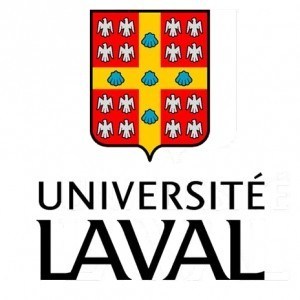Photos of university
The Earth Sciences program at Dalhousie University offers students a comprehensive education in understanding the dynamic processes that shape our planet. This multidisciplinary program combines principles from geology, geophysics, geochemistry, and environmental science to provide a holistic view of Earth's systems. Students will explore topics such as mineral and rock formation, plate tectonics, seismic activity, and the Earth's interior, gaining both theoretical knowledge and practical skills through fieldwork and laboratory experiments. The curriculum is designed to develop critical thinking, problem-solving, and research capabilities, preparing graduates for careers in natural resource management, environmental consulting, research, or further academic study. Throughout the program, students have opportunities to engage with current scientific challenges such as climate change, natural hazard assessment, and sustainable resource utilization. The faculty members are dedicated to providing mentorship and fostering an environment of scientific inquiry. The program emphasizes hands-on experience, with access to advanced laboratory facilities and field expeditions that enhance learning beyond the classroom. Graduates of the Earth Sciences program at Dalhousie University are equipped with a solid foundation in scientific principles, analytical techniques, and an understanding of Earth's processes, making them valuable contributors to industry, government, and research institutions. The program prepares students for professional work where understanding the Earth's systems is critical for informed decision-making and sustainable development. With a strong focus on interdisciplinary learning and real-world application, Dalhousie's Earth Sciences program aims to cultivate knowledgeable, skilled scientists committed to advancing our understanding of our planet and addressing the environmental challenges of the future.
- Earthquakes, Volcanoes, and Natural Disasters
- Earth Sciences Field School
- Earth Materials Science I
- Introduction to Paleontology
- Igneous Petrology
Requirements
- Completion of secondary school (i.e. Grade 12) with a minimum overall average of 70% in five academic Grade 12 courses
- A final grade of at least 70% in Grade 12 English
- Certificate of Secondary Education and Unified State Examination (USE)
- If your first language is not English, you may be required to provide proof of English language proficiency. TOEFL 237 (computer-based), 90 (iBT) and no lower than 20 in each band. IELTS 6.5 overall and no lower than 6.0 in each band
- Online application
- Transcripts
Funding opportunities for Earth Sciences at Dalhousie University include a variety of financial resources designed to support students throughout their studies. Prospective and current students are encouraged to explore Scholarships, Bursaries, and Grants offered by the university, which may be awarded based on academic merit, financial need, or specific criteria related to the program or student background. The Dalhousie University Graduate Studies Office provides information about external funding sources such as government-sponsored scholarships, research grants, and private sector awards that can be instrumental in financing graduate education. Additionally, the university promotes teaching and research assistantships, which offer students the opportunity to work on university projects or assist in teaching, thereby earning stipends and gaining valuable academic experience. These assistantships are typically competitive and are awarded based on academic achievement and research potential. Some students may also access provincial and federal student loan programs, which provide low-interest loans or repayment assistance to eligible students pursuing postgraduate studies. In some cases, specific funding may be available for students involved in particular research areas within Earth Sciences, especially if their work aligns with strategic research priorities or involves collaboration with industry partners. Students are advised to consult the Dalhousie University Financial Aid Office, departmental contacts, and the Earth Sciences program coordinators for detailed information about available funding options, application procedures, and eligibility requirements. Planning early and applying to multiple funding sources can significantly enhance the likelihood of securing the necessary financial support to complete the program successfully.
The Earth Sciences program at Dalhousie University offers students a comprehensive education in the physical and chemical processes that shape our planet. This program is designed to provide students with a strong foundation in geology, geophysics, oceanography, and environmental science, enabling them to understand natural phenomena and address complex environmental challenges. The curriculum combines theoretical coursework with practical laboratory work, field studies, and research opportunities, allowing students to apply their knowledge in real-world settings. Students enrolled in this program can expect to explore topics such as mineral deposits, seismic activity, climate change, ocean circulation, and Earth's internal structure, among others. The university emphasizes interdisciplinary learning, encouraging students to collaborate across disciplines to develop innovative solutions to environmental and resource management issues. Faculty members are experts in their fields, offering mentorship and guidance through research projects, internships, and partnerships with industry and government agencies. The program prepares graduates for diverse careers in resource exploration, environmental consulting, research, teaching, and policy development. Additionally, students are encouraged to participate in field trips and international study programs to gain hands-on experience and broaden their understanding of Earth systems globally. With state-of-the-art facilities and access to extensive geological and geophysical datasets, Dalhousie's Earth Sciences program aims to equip students with the skills and knowledge necessary for professional success and meaningful contributions to understanding and preserving our planet.

